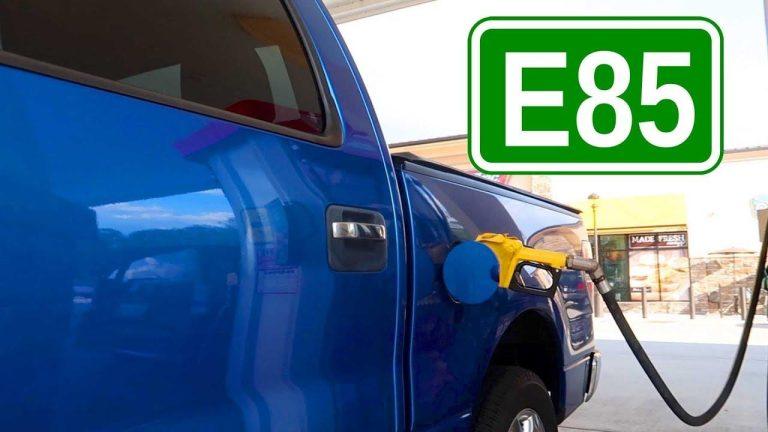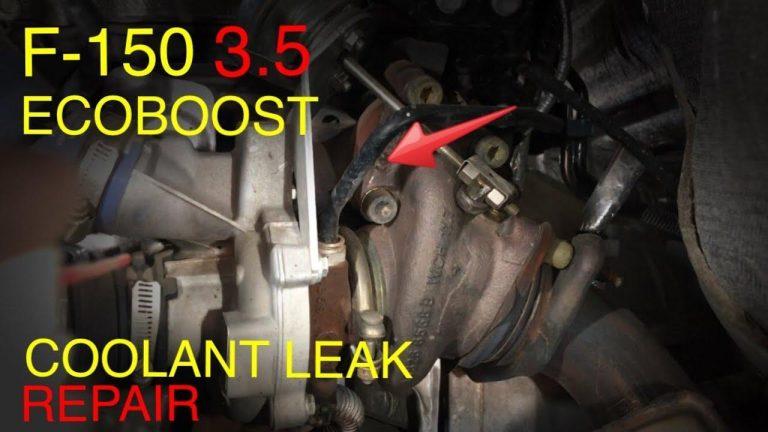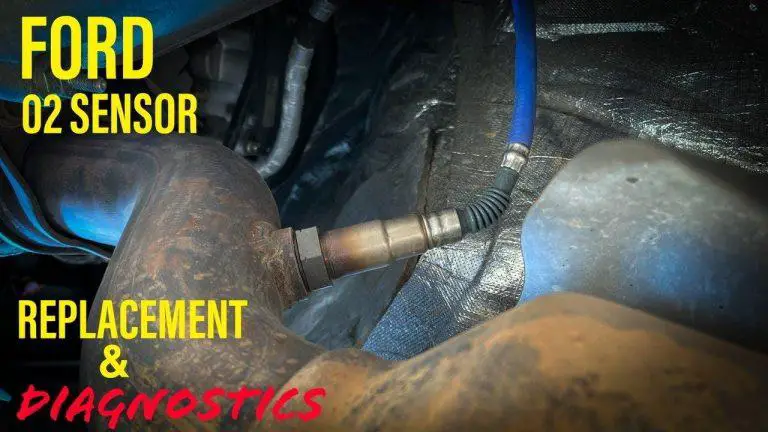275 65R20 on Leveled F150: Transform Your Truck Today!
Wondering if 275 65R20 tires are the perfect fit for your leveled F-150? You’re not alone! This one-stop guide has got all the answers you need. We’ll cover:
- Compatibility and fitment issues
- Considerations for the right 275 65R20 tires
- Best 275 65R20 Tire Recommendations
- Pros and cons of this tire size
- Impact on your truck’s performance
- Minimizing Negative Performance Impact
Stay tuned to find out how to make the best tire choice for your leveled F-150.
Compatibility and Fitment
Wondering if 275 65R20 tires will fit snugly on your leveled F-150? This section unravels the mystery behind tire compatibility and the factors affecting it.
Read on to learn more about general fitment guidelines, crucial variables like wheel offset and suspension lift height, and common issues you might encounter.
Will 275 65R20 Tires Fit on a Leveled F-150?
General Fitment Guidelines
Good news! 275 65R20 tires will generally fit on a leveled F-150 without any hiccups. However, some factors could affect this fitment.
Factors Affecting Fitment
Before you jump in and purchase those tires, there are a couple of variables that can affect how well they fit.
Wheel Offset
Wheel offset is pivotal in determining how the wheel sits in relation to the truck’s body. A higher offset might increase the chance of the tire rubbing against the truck’s internal components.
- Positive Offset: Pushes the wheel out from the truck
- Negative Offset: Pulls the wheel in towards the truck
Suspension Lift Height
If you’ve already leveled your F-150, you likely know that lift height plays a significant role in tire fitment.
Common Fitment Issues and Resolutions
Every rose has its thorns, and so does fitting 275 65R20 tires on a leveled F-150. Here are some common issues and their solutions.
Rubbing
Rubbing is that annoying screeching sound when the tire comes in contact with the truck’s internal components. One solution is to adjust the wheel offset.
Trimming
If the rubbing persists, you may need to consider trimming. Trimming involves carefully cutting away parts of the fender liner or wheel well to make room for the tires.
Considerations for Choosing 275 65R20 Tires on a Leveled F-150
Picking the right 275 65R20 tires for your leveled F-150 is not just about numbers. This section guides you through the criteria that matter and offers extra tips for a wise purchase.

Criteria for Selection
Here’s a breakdown of what you should consider before making your tire purchase.
Intended Use (Terrain Types)
Think about the terrains you frequent. For off-roading, you’ll need tires with deeper treads. On highways, go for tires that offer less rolling resistance and are quieter.
Budget Considerations
Set a budget and stick to it. High-priced tires aren’t always the better option.
Size and Wheel Offset
The right size and wheel offset are crucial to prevent the tire from rubbing against your truck’s internal parts.
Suspension Lift Height
A leveled F-150 usually involves some lift. Ensure your tire choices match your lift height.
Fuel Economy
Bigger isn’t always better. Large tires can look great but might hit your fuel economy.
Performance Factors
Your driving experience is highly influenced by your tire choice. Specialized tires can offer better handling and traction.
Ride Quality
Don’t overlook comfort. The tire’s sidewall and material can make a significant difference in ride quality.
Aesthetic Appeal
Lastly, how your new tires look on your F-150 matters too. Choose a style that complements your truck.
Additional Tips for Tire Purchase
Here are some more pointers to help you make an informed decision.
Consulting Other F-150 Owners
Peer advice can be invaluable. Don’t shy away from asking other F-150 owners about their tire choices.
Questions to Ask at the Tire Shop
When you’re at the shop, ask away. Inquire about warranties, longevity, and anything else that crosses your mind.
Best 275 65R20 Tire Recommendations
Choosing the right tires for your leveled F-150 with 275 65R20 specifications doesn’t have to be overwhelming. Below, you’ll find curated picks tailored to different driving conditions: On-road, Off-road, and All-terrain.
On-road Tire Options
If most of your driving happens on paved roads, these are the go-to options for a balanced blend of comfort and performance.
BFGoodrich Advantage Control
Fuel-efficient and designed for all-season performance, these tires offer a smooth and comfortable ride.
Michelin Defender LTX M/S
They might be a bit pricey, but they make up for it with exceptional durability and ride comfort.
Goodyear Assurance ComforTred Touring
If you’re after a quiet and comfortable long-drive experience, these tires fit the bill.
Off-road Tire Options
Adventurous souls looking to go off the beaten path should consider these rugged choices.
BFGoodrich All-Terrain T/A KO2
Built for toughness, these can handle everything from rocks to mud.
Goodyear Wrangler Duratrac
These tires are your go-to for durable, off-road traction.
Nitto Terra Grappler G2
A balanced choice that offers solid off-road performance while being relatively quiet on the road.
All-terrain Tire Options
For those who want the best of both worlds, here are some well-rounded options.
Cooper Discoverer AT3 4S
Quiet on the road but rugged enough for off-road adventures.
Falken Wildpeak AT3W
These are great for off-roading but still provide a smooth ride on paved roads.
Toyo Open Country AT3
Versatile enough to perform well in everything from mud to asphalt.
Are Ford F150 Wheels and Tires Packages Compatible with a Leveled F150?
When it comes to a leveled Ford F150, compatibility is crucial, especially when it comes to ford f150 wheels and tires packages. Ensuring that the wheels and tires are compatible with the leveled F150 is essential for optimal performance and a seamless fit. By choosing the right packages, you can enhance the overall look and handling of your leveled Ford F150.
Pros and Cons of Running 275 65R20 Tires on a Leveled F-150
Every choice comes with its upsides and downsides. When you opt for 275 65R20 tires on a leveled F-150, here’s what you gain and what you might have to give up.
Advantages
Improved Ground Clearance
Switching to 275 65R20 tires can elevate your F-150, offering you more ground clearance. This is particularly useful for off-roading adventures where you’d rather not scrape the undercarriage on rough terrain.
Aggressive Look
Larger tires fill out the wheel wells, giving your F-150 a bolder, more aggressive appearance. If aesthetics are a priority, these tires can dramatically alter your truck’s visual appeal.
Enhanced Off-road Capability
The larger size and often deeper treads of these tires can significantly improve your truck’s off-road performance. Whether it’s mud, rocks, or sand, your F-150 becomes more capable.
Increased Towing and Payload Capacity
Larger tires can sometimes mean higher load-carrying capacities. If you frequently tow trailers or load up your truck bed, this tire size might offer an advantage.
Disadvantages
Reduced Fuel Economy
One of the trade-offs for those big, beautiful tires is a potential dip in fuel economy. Larger tires often require more energy to rotate, affecting your miles per gallon.
Increased Noise
Larger and more aggressive tire treads often produce more noise, especially at high speeds on paved roads.
Wear and Tear on Suspension
The extra weight and size of larger tires can put more stress on your F-150’s suspension components. This could lead to faster wear and tear.
Cost Implications
Impact on Truck Performance
When discussing truck performance, various factors come into play. From fuel economy to ride quality, each component has a direct influence on the vehicle’s overall efficiency and user experience. Let’s explore these factors in detail.
Fuel Economy
Fuel economy represents the efficiency with which a truck consumes fuel. A higher fuel economy means the truck travels more miles per gallon (mpg) of fuel.
Factors Affecting Fuel Consumption
- Engine Efficiency: The design and efficiency of the engine play a significant role in determining fuel consumption. Modern engines with advanced combustion techniques typically offer better fuel economy.
- Driving Behavior: Aggressive driving, including rapid acceleration and braking, can decrease fuel economy.
- Vehicle Maintenance: Keeping the truck in good condition, especially the engine and exhaust system, can optimize fuel consumption.
Overall Performance
A truck’s overall performance encompasses its acceleration, speed, braking, and maneuverability.
Weight and Rolling Resistance Considerations
- Weight: Heavier trucks require more energy to move, which can decrease performance. Lighter materials and efficient design can mitigate this.
- Rolling Resistance: This refers to the energy lost when a tire rolls. Lower rolling resistance can improve both fuel economy and overall performance.
Ride Quality
The comfort and smoothness of a truck’s ride directly affect driver satisfaction.
Sidewall Stiffness and Ride Comfort
- Sidewall Stiffness: Tires with stiffer sidewalls can handle heavier loads but may offer a rougher ride.
- Ride Comfort: Cushioned suspensions and premium seat designs can enhance the comfort of a truck’s ride.
Minimizing Negative Performance Impact
To ensure your truck delivers optimal performance, it’s crucial to minimize any factors that could negatively impact its efficiency.
Steps to Take
Choice of Lightweight, Low-resistance Tires
Opt for tires that are designed to be lightweight and have low rolling resistance. These tires can significantly boost fuel economy and overall performance.
Proper Tire Inflation
Regularly check and maintain the recommended tire pressure. Under-inflated tires can increase fuel consumption and reduce tire lifespan.
Avoiding Overloading
Always adhere to the truck’s recommended payload capacity. Overloading can strain the engine and reduce fuel efficiency.
Moderate Driving Speeds
Maintain consistent and moderate speeds. Driving at excessively high speeds can decrease fuel efficiency and increase wear and tear.
Additional Performance Improvement Tips
Suspension Upgrades
Consider upgrading to a more advanced suspension system. This can improve ride comfort and handling.
Brake System Upgrades
High-quality brakes not only ensure safety but also enhance the truck’s performance, especially when carrying heavy loads.
Engine Upgrades
Invest in engine modifications or replacements that offer higher efficiency and power. This can significantly boost the truck’s overall performance.
What are some recommended on-road tire options?
Some popular on-road choices include BFGoodrich Advantage Control, Michelin Defender LTX M/S, and Goodyear Assurance ComforTred Touring.
What about off-road and all-terrain options?
For off-road conditions, BFGoodrich All-Terrain T/A KO2, Goodyear Wrangler Duratrac, and Nitto Terra Grappler G2 are often recommended. All-terrain options could include Cooper Discoverer AT3 4S, Falken Wildpeak AT3W, and Toyo Open Country AT3.
Do larger tires affect my F-150’s fuel economy?
Yes, larger tires often require more energy to rotate, which can lead to a decrease in fuel economy.
Will bigger tires be noisy?
Tires with larger and more aggressive treads can produce more noise, particularly at high speeds on paved roads.
Do these tires put extra stress on my F-150’s suspension?
Yes, the added weight and size of larger tires can accelerate wear and tear on your suspension components.






